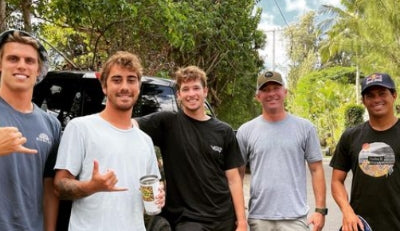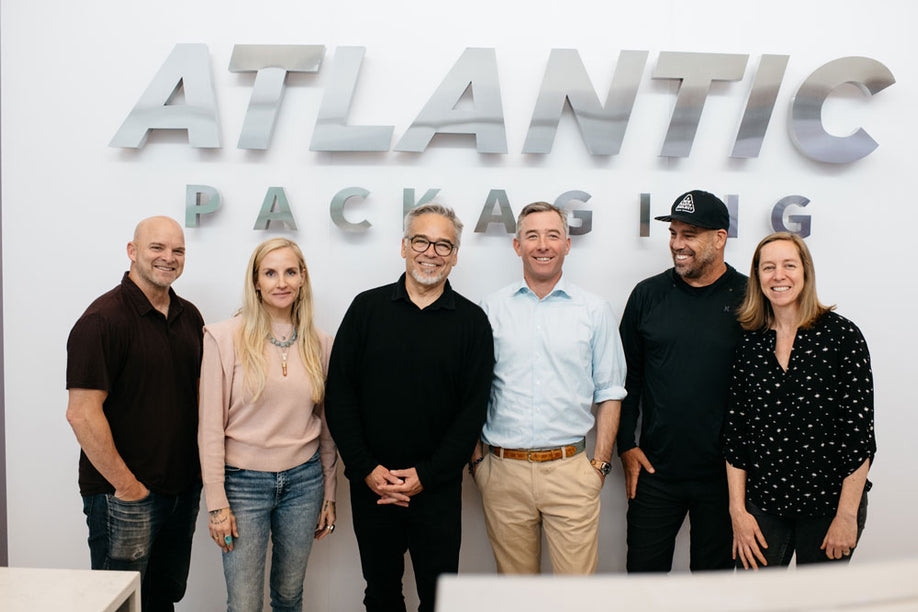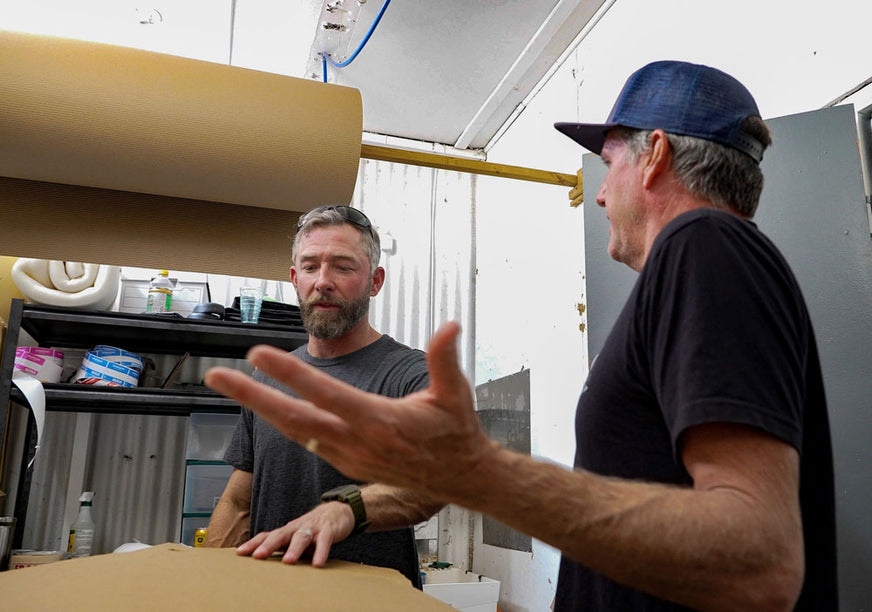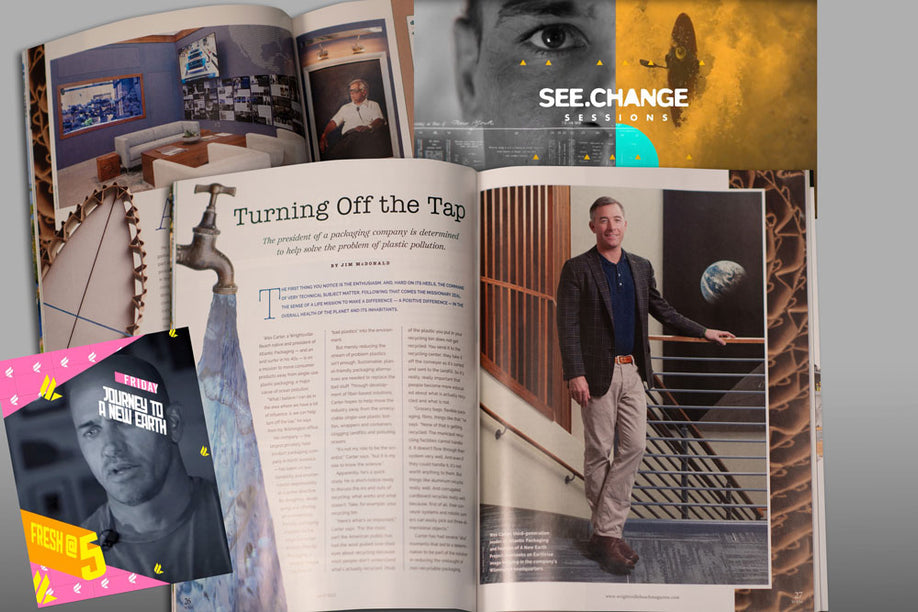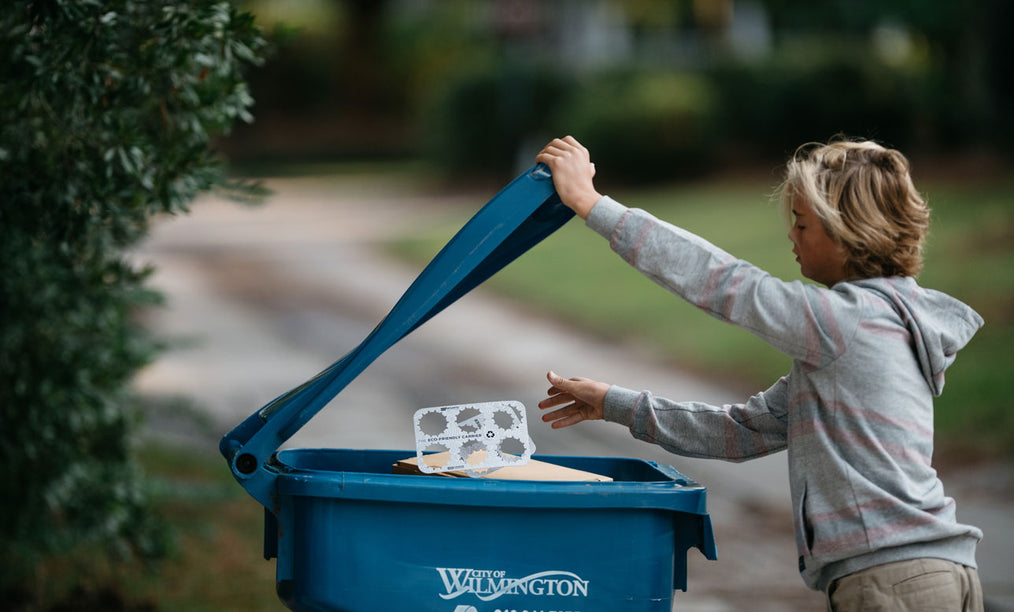In what many hailed as the most insightful discussion of the Circularity Conference 2024, a handful of packaging innovators and industry heavyweights gathered to discuss "Defining Sustainability Criteria for Alternative Materials in the Global Plastic Treaty."
The objective of their wide-ranging discussion was to better understand what a truly informed assessment framework could and should look like when defining the sustainability of alternative materials. By tapping into a community of practitioners, the Ocean Plastics Leadership Network (OPLN) aims to better inform and empower stakeholders at the Global Plastic Treaty table about pragmatic rules, regulations, and incentives that can achieve the desired outcomes.
Across the globe, there’s a broad consensus that the tide of plastic pollution needs to be stopped. Yet, in-depth discussions about how to achieve this goal are still in their early stages. It takes an incredible amount of institutional knowledge and global awareness to make the right decisions. This is why the panel discussion featuring Wes Carter, President of Atlantic Packaging and founder of A New Earth Project; John Warner, President and CEO of Technology Greenhouse; Patrick Shewell, Director of Global Packaging Sustainability at Mondelez International; and Toby Corey, Executive Chairman and COO of Cruz Foam, was so highly anticipated.Between the ongoing Global Plastics Treaty discussions and the more immediate impacts of Extended Producer Responsibility (EPR) legislation being phased in across several states over the next few years, this topic will be one of the most important for brands to stay on top of, as it’s sure to impact everyone. Navigating the complexities of plastic use and sustainability underscores the need for a balanced approach that blends pragmatism with an unyielding commitment to innovation.
Prioritizing Low-Value Plastics for Initial Replacement
Carter stressed the importance of understanding the plastic value chain, highlighting the opportunity to lock in early wins by replacing low-value plastics first. These plastics, such as those used in protective packaging like air pillows, bubble wrap, and foam, are already easy to replace with existing alternative materials. Atlantic Packaging has successfully replaced many of these low-tech plastics with eco-friendly options, setting a foundation for further innovation in the packaging industry.
Carter believes the most impactful place to start is in the rapidly growing direct-to-consumer (DTC) packaging arena, which has significantly higher leakage rates than business-to-business (B2B) channels. Recent studies have shown that 7 to 8% of all DTC packaging sent to households ends up in the environment, and with solutions already available, this is an opportunity that should be seized.
Recognizing the Myriad Challenges of Replacing High-Value Plastics
High-value plastics, on the other hand, present a far more difficult challenge in finding suitable alternatives. Most of these use cases involve direct food contact. These applications are critical for maintaining food safety and shelf life. While we largely take them for granted today, these high-tech materials have been developed through decades of research and development. By protecting and lengthening the life of food, they also play a crucial environmental role that cannot be ignored, as food waste represents wasted resources and energy.
For now, in many cases, these plastics remain the most sustainable option available. "We know we've got a critical role to play in driving circularity and creating a future without plastics pollution," said Patrick Shewell from Mondelez. "But we need to resist the temptation to brainlessly invest in innovation and put things into the market that have unintended consequences."
Shewell illustrated this with an example from his own experience: "Every single day I go to our offices and see compostable plastic straws in the cafe downstairs, thinking that this is an improvement on the original product. However, when you look at the waste disposal systems, there are only options for landfill or recycling. What happens to that compostable plastic straw? It goes in the landfill. And when compostables break down in the landfill, they emit huge amounts of methane gas, exacerbating climate issues. We need to be conscious and make good decisions, understanding both the intended and unintended consequences."
While it is essential to focus on these high-value applications, starting with more accessible entry points allows us to build the necessary knowledge and technology to address more complex issues in the future.
 A Complex Perspective from Mondelez International
A Complex Perspective from Mondelez International
Shewell's extensive global experience with Mondelez International brought a nuanced perspective to the discussion. As a leading global snacking company, Mondelez produces a significant amount of flexible packaging, which is notoriously difficult to recycle. Shewell acknowledged the company's substantial role in addressing plastic pollution, noting, "We place about 900,000 metric tons of converted packaging on the market, of which about 185,000 is plastic, and 70% of that is hard-to-recycle flexible films."
Shewell highlighted the importance of "end-to-end systems thinking" in making sustainable packaging decisions. He argued against simplistic solutions that might lead to unintended consequences. For instance, adopting compostable packaging in regions without adequate composting infrastructure could exacerbate waste and climate change issues.
Shewell emphasized the need for context-specific solutions, considering the entire lifecycle and local conditions. "If we move to this different material, how is that material made? What's the feedstock for that material? Are we diverting potentially from the food supply chain? Are we exacerbating issues of food security?" These questions are crucial in ensuring that sustainability efforts do not inadvertently create new problems.
Furthermore, Shewell stressed the importance of social considerations in developing markets. "In a lot of developing markets, we see real issues with leakage into nature, but we also have an expectation to make our products accessible and affordable." Balancing sustainability with affordability and accessibility is essential for a just and fair transition.
Shewell's insights underscore the need for progress over perfection and the importance of mindful, data-driven decisions. "We understand the intended and unintended consequences of material substitution decisions, and then we determine whether those are manageable and how they're manageable."
The Importance of an Analytical Approach
Carter emphasized the need for an analytical approach to determining which applications are suitable for alternative materials. Rather than adopting a simplistic "plastic bad, paper good" mindset, it is crucial to evaluate the efficiency and environmental impact of each material in its specific application. Some applications might benefit from maintaining plastic if a closed-loop system can be established to capture and recycle it effectively, while other applications could be better served by earth-digestible materials.
Keeping the Doors to Innovation Open
John Warner added another crucial perspective to the discussion, emphasizing the importance of keeping the doors to innovation open. He highlighted that striving for perfection can stifle progress. "We need to accept the reality that the enemy of the excellent is the perfect, and the perfect does not exist," Warner stated. In the scientific process, ideas build on one another incrementally. If we wait for a perfect solution before implementing any changes, we risk stifling innovation and missing out on valuable opportunities for improvement.
Warner stressed that nature itself thrives on continuous, iterative improvement rather than perfection. By encouraging the development and testing of new ideas, even if they are not perfect from the outset, we can foster a culture of innovation that ultimately leads to more effective solutions. He cautioned against waiting for "mythical" perfect solutions and emphasized the need to get viable ideas out into the world, allowing them to evolve and improve over time.
 The Need for Revolutionary Recycling Innovations
The Need for Revolutionary Recycling Innovations
Warner also underscored the necessity of revolutionary innovations in recycling technology. He argued that while it is essential to invent products that can be manufactured with existing technologies, the same approach does not apply to recycling. "We must need dramatic innovation in how we recycle," Warner insisted. Relying solely on current recycling technologies limits our potential to effectively manage plastic waste.
Warner drew parallels with nature, where construction and deconstruction processes occur simultaneously and seamlessly. He envisioned a future where factories would blur the lines between manufacturing and recycling, much like biological systems do. By integrating these processes, we can achieve true sustainability. "Nature does not separate the construction and the deconstruction of molecules," Warner noted. Emulating this approach can revolutionize our recycling practices and enhance our ability to manage plastic waste sustainably.
Building a Framework for the Global Plastics Treaty
The insights shared by Carter, Warner, and Shewell are invaluable as we work towards creating a framework for the Global Plastics Treaty. A nuanced, analytical approach combined with an openness to innovation is essential for ensuring that the transition away from problematic plastics is both pragmatic and sustainable.
The journey towards sustainable packaging solutions requires a deep understanding of the plastic value chain and a commitment to making informed, strategic choices. By fostering a culture of innovation and pragmatism, and by revolutionizing our recycling technologies, we can make significant strides in mitigating plastic pollution while maintaining the functionality and benefits that plastics offer.
